Customer Services
Copyright © 2025 Desertcart Holdings Limited
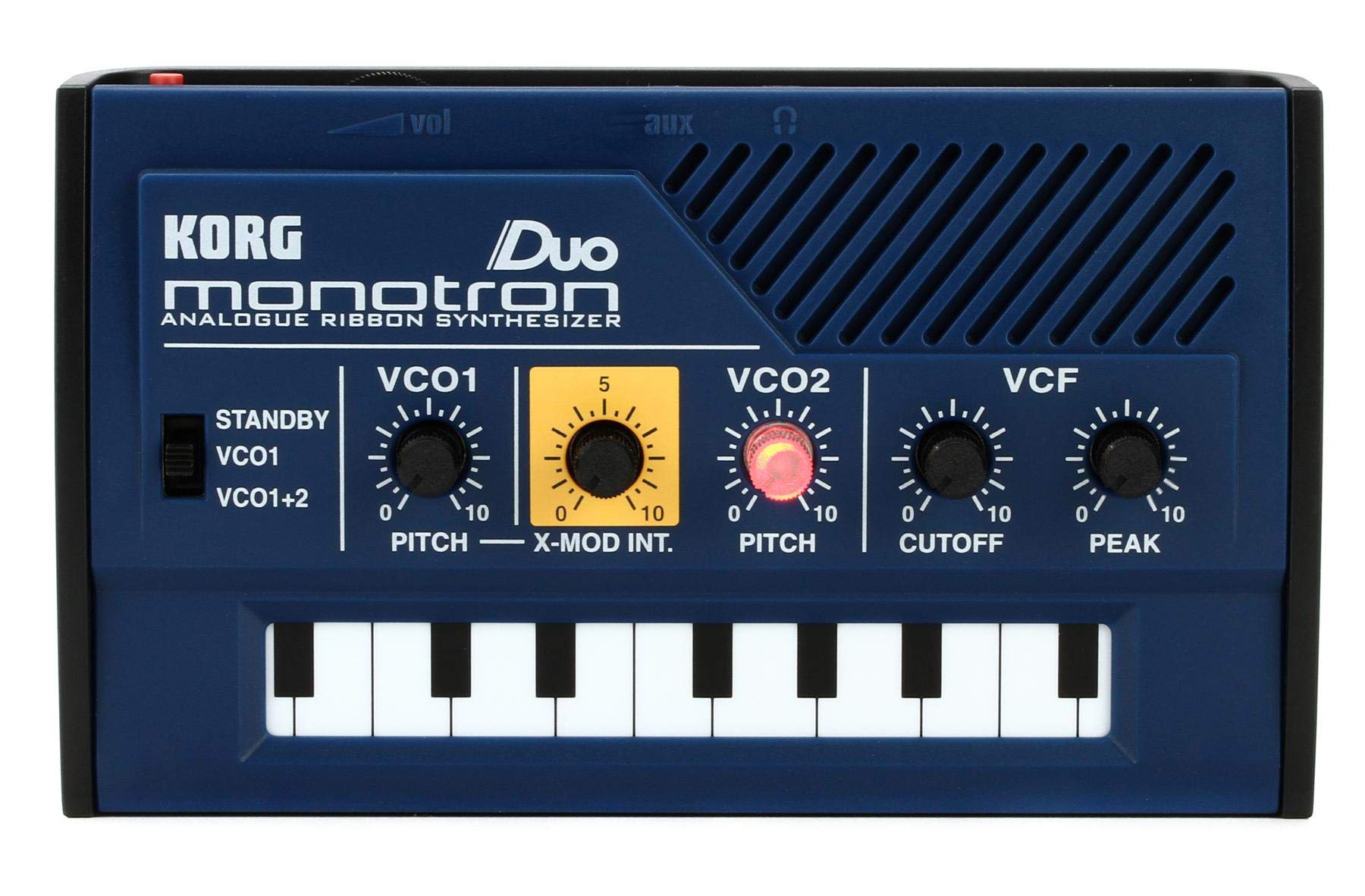

🎶 Elevate your sound game with analog vibes that demand attention!
The Korg monotron DUO Analog Ribbon Synthesizer is a compact, lightweight accessory designed to expand the sonic capabilities of the Monotron Duo. Featuring dual analog oscillators and a responsive ribbon controller, it offers enhanced modulation options and intuitive control for both beginners and seasoned musicians. Built with durable carbon fiber and designed for easy integration, this synthesizer accessory invites creative sound exploration and customization, making it a must-have for modern music producers seeking unique analog textures.












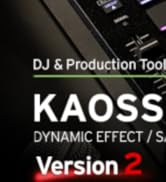
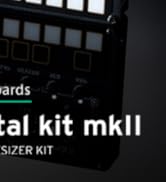




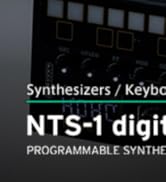

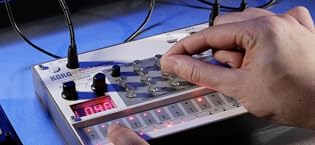

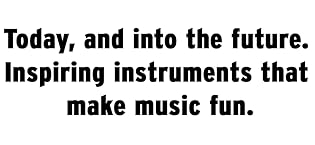

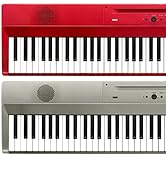

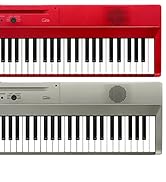
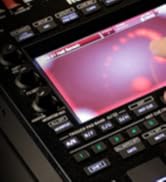


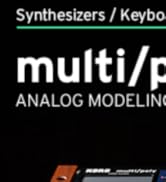
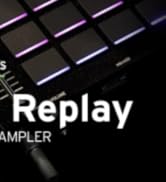



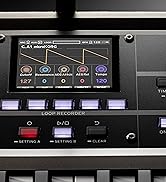

| ASIN | B00684KFFW |
| Batteries | 2 AAA batteries required. (included) |
| Battery type | Alkaline |
| Best Sellers Rank | #12,471 in Musical Instruments ( See Top 100 in Musical Instruments ) #62 in DJ Mixers |
| Body Material | Carbon Fiber |
| Color Name | standart |
| Color Screen | No |
| Connector Type | Auxiliary |
| Customer Reviews | 4.4 4.4 out of 5 stars (750) |
| Date First Available | November 15, 2011 |
| Finish Type | Gemalt |
| Global Trade Identification Number | 04959112089679 |
| Included Components | with case |
| Is Discontinued By Manufacturer | No |
| Item Weight | 6.4 ounces |
| Item model number | MONOTRONDUO |
| Manufacturer | Korg USA Inc. |
| Material Type | Kohlefaser |
| Product Dimensions | 6.4 x 1.6 x 9.2 inches |
| Size | standart |
S**S
Perfect for adults and kids
Zero learning curve, just put the batteries in and start messing around! The design is simple to understand and looks sleek, while the device itself is pretty light this is definitely not a toy. These are great for someone interested in music production, sampling, or just having fun by making sounds. If you have a kid with a passion for music or electronics I think this is a great investment because It’s a cheap and available way to be introduced to the fun of making music! There are endless possibilities to what you can do with this device and use it with, I especially like how easily the device can be disassembled and modded because of the open solder pads! I highly recommend you give this little guy a shot.
R**N
Be careful with mono mixers
If you want to use this with a mono mixer, you MUST use a stereo breakout cable (or other solution to connect only one stereo channel to a mono output) to connect to a mono mixer, etc, or you WILL fry the VCOs. The Monotron Duo simply will not tolerate the stereo pins being bridged at all, this likely includes the stereo to mono adapters that bridge the stereo signal (still not sure how that fried the VCOs and nothing else). The filter circuit will still work (I guess that's a consolation prize for not fully understanding why in the manual it says not to use a mono connector on the output). I just had to order a second one along with a breakout cable (luckily my delay did not fry but I got one for that as well), but this still gets 5 stars for what it is.
A**.
Is it a toy? An instrument? A proving ground?
It's kind of a toy, but also kind of a proof-of-concept for Korg. The Monotron duo is awesome. It's about the size of an old audio cassette case. The knobs are responsive, but a little wobbly. The ribbon is great - very responsive, and it's easy to use. You can make some fun and funky sounds with this. There's a little button on the left shoulder of the unit that selects between continuous and several quantized modes. The two oscillators are controlled with a pitch knob (labeled VCO1), and the second oscillator is tuned relative to VCO1 with the VCO2 knob. This actually caused great frustration for me, because they were not perfectly in-tune on my unit when the VCO2 knob was straight up and down - it had to be a little bit to the left. This no doubt has to do with the analog circuitry and cheapness of the product, but the imperfection was annoying enough that I sent it back. The VCF sounds fantastic, and the cross modulation knob adds a lot of character to the sound. For those who have seen the original Monotron, you'll notice that there's no LFO on this unit. You're trading the LFO for the second oscillator and the quantization button. The result is a much more musical machine, but the tradeoff is real. You also get an aux in jack, which allows you to run external audio through the excellent filter. I said this was a "proof-of-concept," and it is - where the concept is, "A ridiculously affordable and fun analog synth that proves people want analog synthesizers, so Korg can go on to make tons more at other price points with different features." It *seems* like this device made other instruments, like the Volca series and the Minilogue, possible. And for that, I am tremendously grateful. And I really like this product. But having returned the unit I purchased, I would not buy another since I purchased the Volca Keys instead. The bottom line is that if you can afford this unit or the Volca Keys, you want the Volca Keys. But this is an excellent toy and a surprisingly fun instrument, if seriously limited in application.
B**.
It's addictive
Most people seem to view this as a toy and it sort of is but you can absolutely use it as part of your music making process. The limitations of the instrument are what make you get creative with it. I've never had a hardware synth before and after playing with this very basic one I ended up getting into larger, more complex hardware setups with the Korg Volcas and an OP-1. The 4 modes (ribbon, major, minor, and chromatic) make it easier to play melodies if you have something particular in mind. The controls are quite basic but I love the sounds you can get out of them. An impressive range. You can also input any line level sound source into the aux input and use the filters to manipulate it. That's always fun. For me this is a great tool for recording ambient drone music. Everyone has their unique way of playing the Monotrons and that's mine. It is addicting and for me it was a gateway into the world of proper hardware synthesizers.
T**0
AWESOME!
I love everything about this synthesizer. Im known as the one who carries his synth everywhere he goes and its a really great device. As a single instrument you can make some really good sound effects. However it doesnt have enough on it to create a excision or skrillex sound but definetly something like deadmau5 or Mord Fustang is achievable on this. The fact it isnt a midi is something that not everyone likes but i actually prefer to have it with the aux jacks because im an on budget person and have some mild Daw's and Music creator 6 cant really make a electro or dubstep beat. You can run a song through it and play sounds over it and that feature is pretty cool. you can also find some pretty good combo's on this thing and its interesting every time you turn a knob. ALSO get a headphone splitter if you plan to record the sounds because once you plug it into your microphone jack you can hear hat your playing, this way you can hear and record it. Belkin Speaker and Headphone Splitter Overall a really great buy for the beginner and maybe even a professional who would like something to carry around and make sounds on. Really Fun, Very Portable, Great Device Korg!
G**T
Fun toy
It’s a fun toy, but very very small about 4.5” x 2” makes robot type noises. I’m not a musician so maybe someone who makes music would like it more.
P**.
Muy buen producto para usarlo incluso en estudio de grabación.
N**H
Good
仏**滅
到着してみて、想像以上に小さかった。 本当に音が鳴るのか不安だったけど、きちんと鳴ってくれた。 そして、その音が鳴るってのがとても楽しい 色々設定みたいなのを変えて遊んでる。 クリティカルな音が出たときには、ちょっと嬉しいって思っちゃうくらい。 これで作曲となると難しいかもしれないけど、いつかはチャレンジしてみたい
W**N
In terms of hardware synths, I have a microKorgXL and a Moog Slim Phatty which I love to pieces and use all the time... However I don't think either of them get as much use as my montron and I think that is purely down to the in built speaker... I have yet to use it in any of my productions and purely play around with it for fun, but I would like to include it in a tune soon. It is sooo much fun for when your chilling and wanna play around with the possibilities of what you can create. I bought this and my housemate loved it so much he went and got the original monotron so we now chain them together and run them through our guitar pedals and kaoss pads to see how far we can push the sounds... if you are a tech head you will know that although sometimes utterly pointless, this experimental process is a lot of fun. Specifically for the duo: I have found that it is definitely the only real monotron designed for playing melodic lines due to its quantizable ribbon keyboard. If you have a chromatic tuner at hand it is very easy to set a key and a scale and get some sweet lines and hooks out of it. The second oscillator is wicked for creating interval based sounds which are reminiscent of retro video game music and electro due to both oscillators being square waveforms. The x-mod on the duo is essentially a frequency modulation effect that routes the output of each oscillator across one another other (hence cross or x mod). The second oscillator can reach inaudible low frequencies and therefor the effect can also be used as an LFO using the square wave of oscillator 2 to modulate the pitch of oscillator one. When turned up to a higher frequency, oscillator 2 modulates the first oscillator to create harmonically rich tones not present in either oscillator creating some interesting distorted and metallic sounds. I am definitely going to buy more monotrons once my next load of pocket money comes in to chain them all together :)
K**W
You can tune the oscillators to make some pretty fat signals. It's tricky but possible. Also the pitch of osc 2 increases the xmod rate even if it's set to only run one oscillator which is pretty cool. There's a ton of sounds you can make with this. Super smooth risers with the potentiometer strip. Basses and modulated effects. If you plug this into your daw and tinker with it you can slice some good samples. It's limited in what it can do outside of that but it is 100% usable for making interesting music.
Trustpilot
1 month ago
2 weeks ago